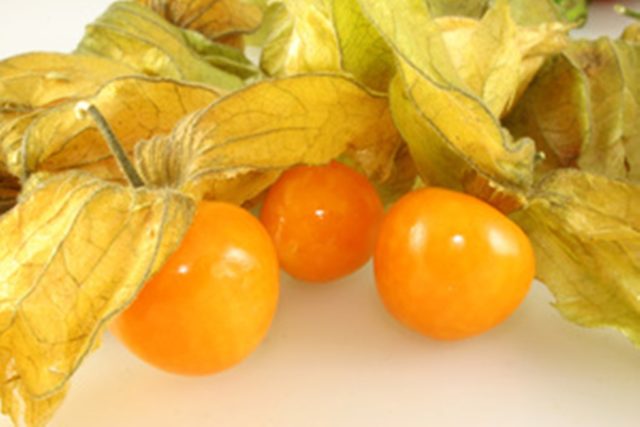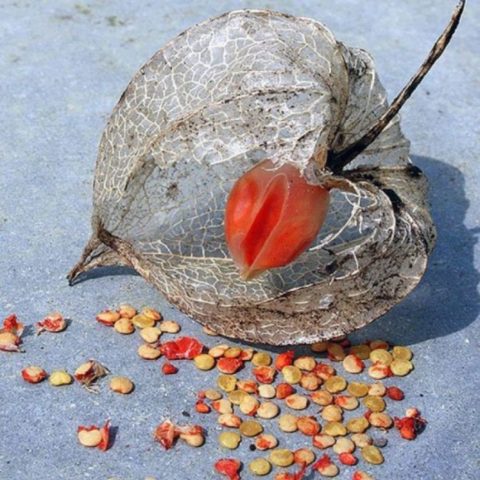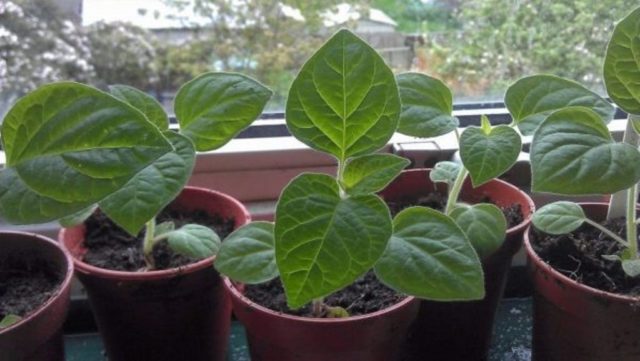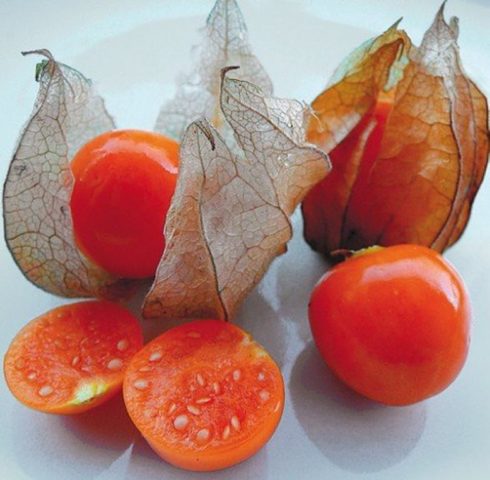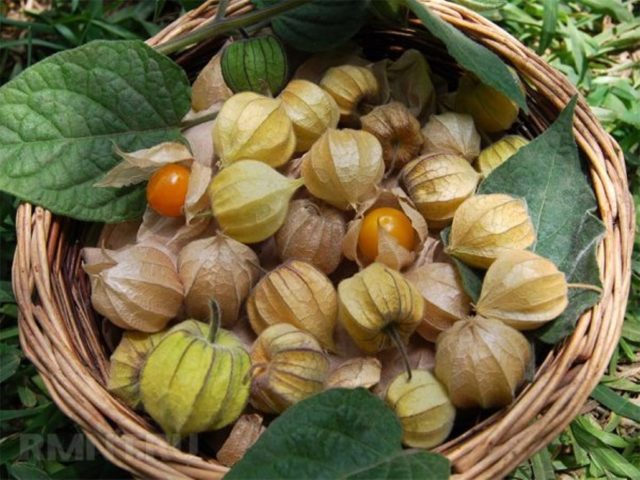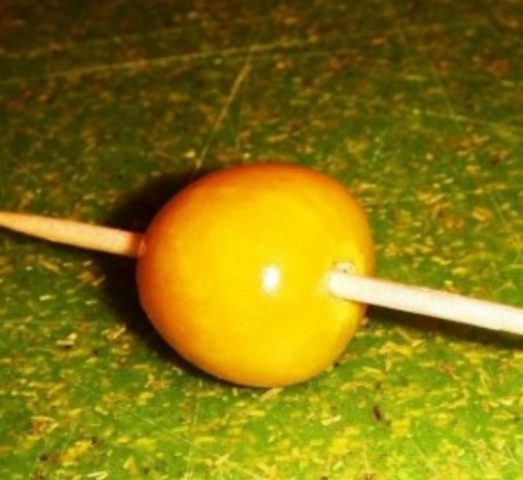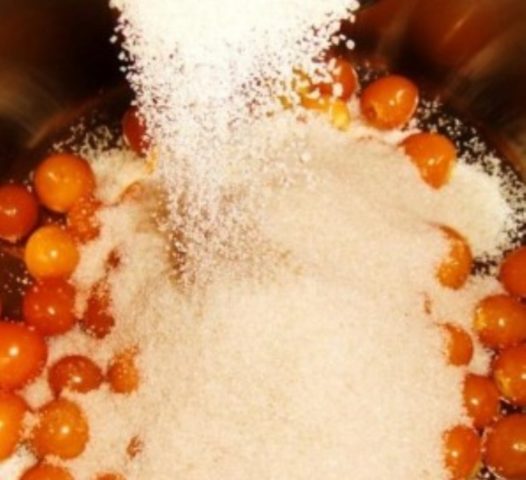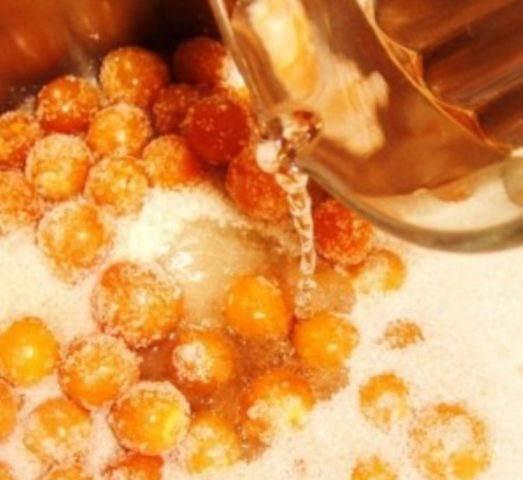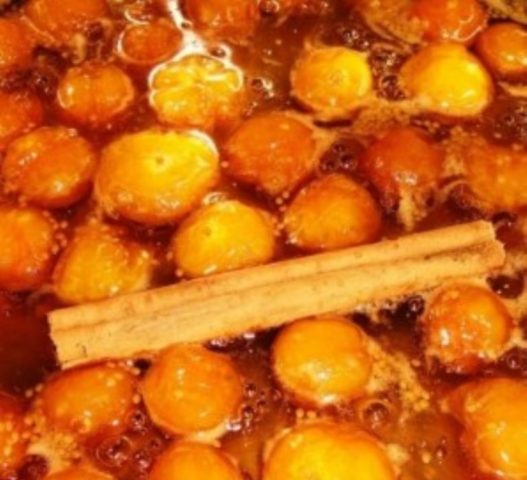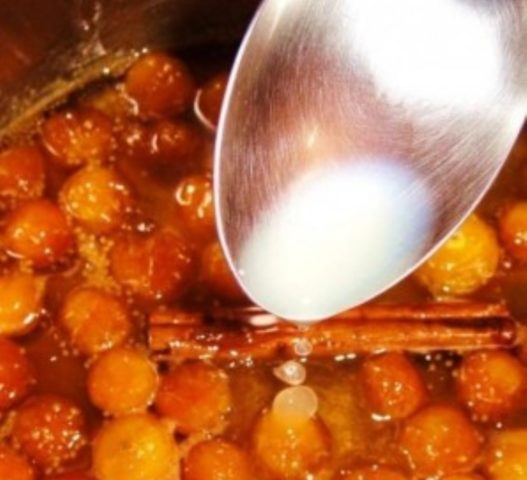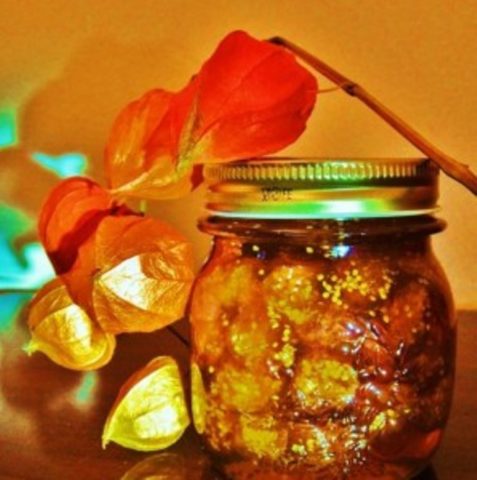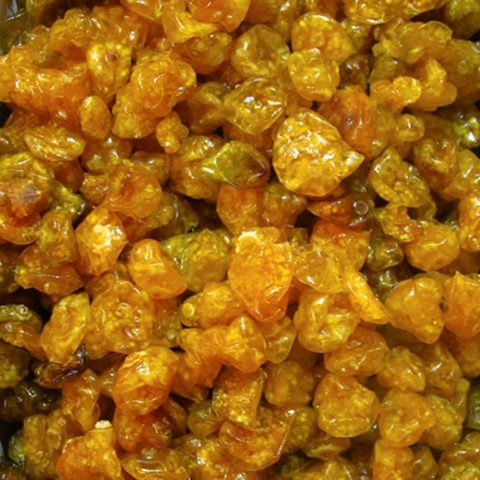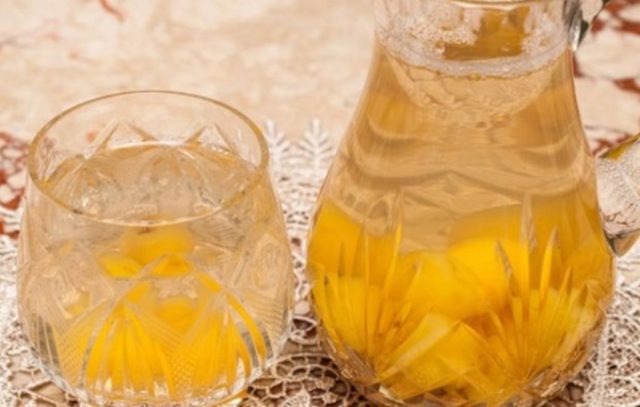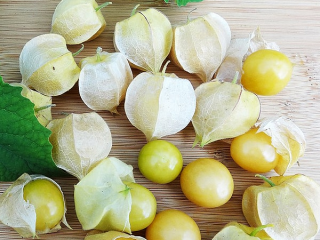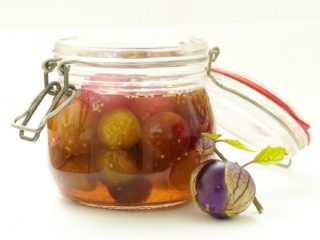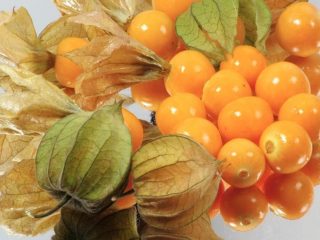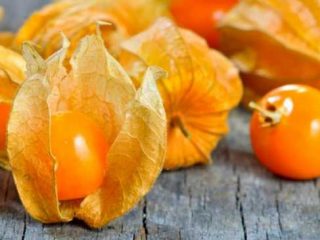Content
Physalis is a popular plant in the nightshade family. It is unpretentious, grows well and develops in all regions of Russia, rarely suffers from fungal diseases. Healthy fruits have not only a beautiful appearance, but also good taste. There are 3 types of physalis - vegetable, decorative and berry. Growing and caring for strawberry physalis is not difficult, even a novice gardener can handle it.
The benefits and harms of strawberry physalis
The first tribes of Central and South America learned about Physalis 4000 years ago. Due to the large amount of nutrients, physalis was used to treat many diseases. Modern scientists have proven that by using the fruits regularly, you can prevent the occurrence of many diseases. Useful properties of physalis:
- Due to the high content of K and Mg, it normalizes the work of the heart muscle. Reduces the likelihood of heart attack, stroke, atherosclerosis and aneurysm.
- The antioxidants contained in the berry prevent the appearance of malignant tumors.
- Reduces the risk of joint disease. Physalis relieves the condition with exacerbation of arthritis and arthrosis. It removes salts from the body.
- The blood sugar level returns to normal. Despite the fact that the berry is sweet, it can be used for different types of diabetes.
- Due to the high content of beta-carotene, vision improves. Physalis prevents the appearance of cataracts, glaucoma and stops macular degeneration and lens opacity.
- Strengthens the immune system. Due to the high content of vitamin C, the berry saves from vitamin deficiency, colds and viral diseases, and also quickly restores the body after surgery.
- Improves the functioning of internal organs. Reduces the risk of constipation, stomach cramps and flatulence. The fiber and pectin contained in the berry prevent gastritis, ulcers and colitis.
- Slows down the aging of cells, eliminates wrinkles, age spots and improves the structure of the skin.
- Accelerates the healing of wounds, burns and ulcers. Physalis pulp gruel accelerates cell regeneration, alcohol infusion - relieves scars and scars.
- Due to the high content of B vitamins, efficiency increases, fatigue decreases, vitality is restored, and the risk of migraine, muscle cramps and depression decreases.
Despite the large number of useful properties, physalis also has contraindications. It is not recommended to be included in the diet for pregnant and lactating women and people with high acidity of the stomach.
Physalis can only be consumed with fruits, all other parts of the plant are poisonous. Particularly dangerous are lanterns that cover the fruit.
Growing and caring for strawberry physalis
Physalis is considered by many Russian gardeners to be an ornamental plant. But this opinion is erroneous, since berry or strawberry physalis is a delicious fruit crop that can be grown in all regions of Russia.
Landing dates
Physalis strawberry can be grown by seedling and non-seedling method. Sowing seeds outdoors is carried out from mid-April to the second half of May or in autumn, 2 weeks before the onset of frost.
To harvest an early harvest, physalis is grown by a seedling method. Sowing material for seedlings is sown in mid-April, since the plant is frost-resistant, it can be planted in open beds in mid-May.
Growing physalis berry seeds
A seedless way of growing strawberry physalis is possible only in southern cities with a warm climate. Under such conditions, the plant will have time to ripen and give a high yield of tasty and healthy fruits.
Physalis strawberry is an unpretentious culture. It bears fruit well both on clay and sandy soil. Since the berry culture is short daylight hours, the beds should be done in partial shade. If the area is small, the plant can be grown among fruit trees, between shrubs, or near a fence.
The selected area is dug up, weeds are removed and organic fertilizers are applied. Fresh manure is excluded, as it burns the roots and leads to the death of the plant.
Seeds are planted in open ground only after the soil reaches a temperature of +7 degrees. In the dug area, grooves are made at a distance of 30 cm from each other. The seeds are sown to a depth of 1.5 cm, maintaining an interval of 5–7 cm, covered with earth and covered with a white non-woven material.
After the appearance of real sheets, the shelter is removed, and the sprouts are thinned out, leaving a distance of 20-25 cm.
Growing physalis strawberry seedlings
The seedling method of growing strawberry physalis will allow you to get an early harvest. This method is suitable for growing in regions with short summers and unstable climates.
It will not be difficult to grow physalis seedlings:
- Before planting, the purchased seeds are immersed in a saline solution for a few minutes. Those grains that have floated to the surface are discarded, the ones remaining at the bottom are washed and dried. To get strong, healthy seedlings, the seed must be disinfected. To do this, it is immersed for 6-8 hours in a weak solution of potassium permanganate.
- After drying, the seeds for seedlings are sown from late March to mid-April.
- The nutrient soil is filled in 0.5 liter cups. The soil is moistened and leveled.
- In each container, 2-3 grains are sown to a depth of 1-1.5 cm. Cover with foil and put away in a warm, not very bright room. The optimum temperature for germination is + 23-25 degrees. To prevent condensation from accumulating on the walls of the mini-greenhouse, it is regularly ventilated.
- On the 7th day after the emergence of shoots, the shelter is removed, the temperature is lowered to +20 degrees. Containers are removed in a well-lit place. Strawberry Physalis needs 10 hours of daylight for good growth.
- Seedling care is not difficult. Watering as the soil dries up, nitrogen fertilizing on the 15th day after the emergence of sprouts, removing excess, weakened specimens.
- Seedlings are hardened 20 days before planting in the open air. The containers are taken out into the open air, at a temperature of + 8–10 degrees, for several hours, daily increasing the time spent outdoors. For 2-3 days, the plant can be left outdoors overnight.
Seedlings are planted in late May, after they grow to 10-12 cm. The interval between bushes is half a meter, between rows - 80 cm.
Care rules
Grown seedlings of strawberry physalis are planted in the evening in a moistened hole, until the first true leaf. To prevent the young plant from getting sunburn, it is covered with a white covering material for 7 days.
Strawberry physalis is a culture for lazy gardeners, since caring for it is simple and does not require additional expenditure of time and effort. Care consists in watering, weeding, loosening and feeding.
The first irrigation is carried out a week after planting the seedlings, further irrigation is carried out as the soil dries up.
Strawberry berry will not refuse feeding:
- 1.5 weeks after seed germination - nitrogenous fertilizers;
- during the flowering period - complex mineral fertilizers;
- twice during the formation of fruits with an interval of 25 days - phosphorus-potassium dressing.
Do I need to pinch the physalis strawberry
Physalis belongs to the nightshade family, but, unlike tomatoes, the plant does not need pinching. Since the crop is formed at the forks of the shoots.
Reproduction
Strawberry Physalis is an annual crop, propagated by seeds. You can buy them or assemble them yourself. Large, healthy fruits are peeled, softened and dried. The process will go much faster if the berry is cut in half and soaked in water for several hours. After the pulp has softened, it is sieved and the planting material is removed.
Seeds can be obtained by another method. After the first frost, the bush is removed from the ground, suspended in a warm room, spreading rags under it. As the seeds ripen, they will begin to spill out. The collected seeds are dried, put in a rag or paper bag and put away in a dark, cool room.
The plant reproduces well by self-sowing. To do this, a plant with fruits is left in the garden bed, and as it ripens, the seeds spill out onto the ground. The seeds are frost-resistant, tolerate Siberian and Ural frosts well. But to be sure of germination, it is better to mulch the garden with straw or foliage.
Diseases and pests
Strawberry Physalis has strong immunity to many diseases. If the disease still affects the plant, it is irrational to treat it. The bush is removed from the garden, burned, and the soil is treated with a copper-containing preparation.
How and when to collect berry physalis
The first crop appears 100 days after seed germination. Productivity is high: with proper care, up to 3 kg of berries can be harvested from 1 bush. Fruiting is long, lasts until the first frost.
The crop is harvested on a sunny, dry day. You can determine the degree of maturity by the bright color of the fruit and the drying of the leaves of the fruit capsule. It is undesirable to delay the collection of fruits. Ripe berries can begin to crumble and rot. And it is also necessary to be in time before the first frost, since such fruits cannot be stored for a long time.
What can be made from physalis berries
Strawberry Physalis is a tasty, healthy berry that is widely used in cooking. Jam, compotes, candied fruits and raisins are prepared from the fruits.
Jam
Physalis jam in our country is an exotic delicacy. For cooking, select large, juicy fruits without signs of rot.
Ingredients:
- strawberry physalis - 0.3 kg;
- lemon juice - 2 tbsp. l .;
- granulated sugar - 400 g;
- water - 150 ml;
- cinnamon stick - 1 pc.
Step by step cooking:
Step 1. The berries are peeled from the foliage and each pierced with a toothpick.
Step 2. Prepared physalis is transferred to a container and covered with sugar.
Step 3... Pour water and cook over medium heat, uncovered, until the sugar is completely dissolved.
Step 4... After the sugar syrup has formed, the fire is increased, cinnamon is added and, with constant stirring, bring to a boil and cook for 10 minutes.
Step 5... Reduce the fire to a minimum, pour in lemon juice and boil for 2 hours.
Step 6... At the end of cooking, cinnamon is removed, and the jam is poured hot into prepared jars. Enjoy your meal.
Candied fruit
Delicious, sweet treat that can replace potato chips for children.
Ingredients:
- physalis - 1 kg;
- granulated sugar - 1500 g;
- water - 250 ml.
Performance:
- The berry is prepared: peeled, blanched and pierced with a fork.
- Sugar is poured into boiling water and boiled until the sugar particles are completely dissolved.
- A berry is added to the sugar syrup and boiled for several minutes.
- Remove from heat and leave to infuse for 8-10 hours.
- This operation is done 5 times.
- Next, the physalis is thrown onto a sieve to drain all the syrup.
- Lay out on a baking sheet and put in the oven to dry at a temperature of +40 degrees.
- The finished delicacy is laid out in jars and stored in a dry place.
Raisins
Strawberry Physalis, due to its taste and aroma, is suitable for the preparation of raisins.
Ingredients:
- berry - 1 kg.
Performance:
- Physalis is sorted out and sorted by size.
- Spread on a baking sheet and put in the oven for half an hour at a temperature of 60-70 degrees.
- Dried raisins are poured into a rag bag and stored in a dry place.
Compote
Strawberry physalis compote is a tasty, healthy and aromatic drink that will please the whole family.
Ingredients:
- berry - 1 kg;
- water - 1 l;
- granulated sugar - 1 kg;
- citric acid - 15 g.
Execution:
- The berries are sorted out, washed and dried.
- Sugar, citric acid are poured into boiling water and boiled for 5 minutes.
- Pour the berry with hot syrup and leave for 4-5 hours to infuse.
- Then the pan is placed on the stove and boiled after boiling for 5-10 minutes.
- Hot compote is poured into sterile containers and, after cooling completely, is stored.
Reviews of physalis strawberry
Conclusion
Physalis is a beautiful and useful plant that has gained popularity among many gardeners. Growing and caring for strawberry physalis is not difficult, with a minimum of effort you can collect a generous harvest of berries, from which delicious preparations for the winter are obtained.
